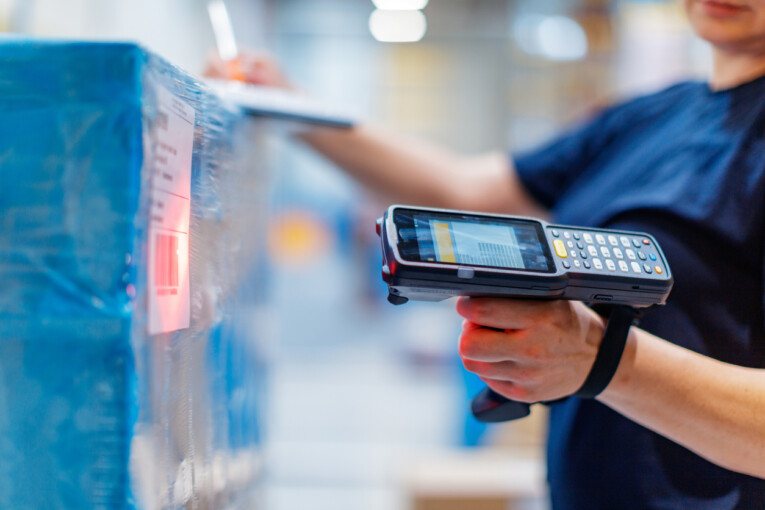Why Product Traceability is Crucial for Modern Warehousing
Traceability is a hot topic for warehouse managers as regulations become stricter, recall awareness and safety issues become more acute, and customers are more interested in supply chain transparency.
Product traceability in warehouse management is the ability to tell where your products have been and where they are going. This can be accomplished with serial numbers, SKUs, barcodes, RFID tags, and the use of warehouse management software to keep track of it all. As the connection between retailers and consumers, warehouses must meet the high standards of both their client audiences and maintain well-informed systems regarding product sources.
Join us as we explore the important role product traceability has taken in modern warehousing.
Why Product Traceability Matters
How does a brand know that it is selling only the best? In a world of complex and global supply chains, product traceability is the only solution. Traceability has become essential for three important reasons:
1. Regulatory Compliance
The introduction of stricter regulations on sustainable production, product safety, and supply chain transparency has made product traceability a must. These regulations require warehouses and retailers to know where their products are coming from and to be able to correct quality issues.
2. Recall Management
If a product is identified as dangerous or defective, how do you know which products to recall? Product traceability aids in efficient recall processes, reducing risks and costs by allowing the exact sources and batches of flawed products to be identified and tracked from their origin to their final destinations.
3. Quality Assurance and Brand Reputation for High-End Brands
Maintaining traceability upholds brand integrity and consumer trust. This is especially important for high-end brands, companies that proclaim the quality of their products, and those with organic certifications to maintain.
Industries Benefiting from Product Traceability
Product traceability provides valuable information for any industry with a supply chain, but it has become a crucial part of transparency and quality assurance for a few industries in particular. Traceability matters most to brands whose products begin as organic materials and whose products are selected by end users for reasons of authenticity and safety.
Ingredient Suppliers
Product traceability allows ingredient suppliers to maintain transparency and quality control, ensuring their products meet regulatory standards and customer expectations.
CPG, Food and Beverage Brands
Product traceability is crucial for food and beverage brands to guarantee the safety and authenticity of their products, facilitate swift recalls, and maintain consumer trust.
Pet Food Brands
Traceability ensures all ingredients are safe and meet health standards, protecting pets’ well-being and preventing costly recalls.
Health and Beauty Brands
Product traceability helps health and beauty brands verify the integrity and sourcing of their ingredients, supporting claims of quality and safety essential for consumer confidence and regulatory compliance.
Role of Warehouse Management Software (WMS)
Warehouse management software provides the infrastructure to track individual products, shipments, and details gathered through traceability systems. Through WMS, it becomes possible to quickly identify a product’s path from its source materials to its retail destinations to provide accountability, visibility, and transparency.
Chain of Accountability
WMS plays a pivotal role in maintaining a chain of accountability for every product movement within your warehouse. This shows where products have been, who has handled them, and where flaws or contamination may have occurred if a recall is necessary.
Real-Time Visibility
A modern WMS makes traceability possible by bridging data gaps to provide real-time visibility. Invested parties can investigate a product’s current whereabouts, the path it has taken, and the path it is likely to take.
Detailed Tracking
WMS traceability provides insights about a product’s locations from arrival to delivery and everything in between. Detailed information includes lot numbers, shelf duration, and real-time status updates. This data becomes crucial during recalls or investigations.
Achieving Traceability with WMS
What can a WMS reveal when traceability is the goal? Warehouse management software creates easily referenced records each time a product is scanned within the system. It can inherit traceability records from earlier stages of the supply chain and provide details about where a product pallet, shipment, or individual package may be headed.
Tracking Product Locations
It becomes possible to identify the current location of a package as well as the locations it has been before. Real-time location tracking can always answer the question “Where are my products?”
Data Bridging
Modern WMS systems bridge gaps in data by providing real-time visibility into product whereabouts, making it possible to create a comprehensive and accountable record of a product’s location and where/how it was handled.
End-to-End Tracking
Managers can track products from the moment they are picked off the shelf to their presence on the dock.
Critical Data
Clients often need specific data from traceability information. This may include lot numbers, how long it has been in storage, storage conditions, real-time status updates, shipping routes, and more. This data becomes crucial during recalls or investigations.
Identifying Product Handlers
Tracing products allows for the identification of the product handlers along a supply chain path, which is important for accountability.
Interaction Tracking
Product traceability involves knowing who interacts with each product. Individual handlers often sign off when they accept a shipment, put together a package, or load a set of deliveries onto their truck. This allows warehouses and clients to identify the interactions a product has been through.
Troubleshooting and Accountability
Traceability information helps troubleshoot missing items or errors. By identifying individual handlers, it can can ensure more careful handling of products that might be damaged if handled roughly or stored in the wrong conditions.
Productivity Analysis
By tracking the exact number of units handled by warehouse staff each day, productivity can be tracked by who is meeting their efficiency goals and which tasks they excel at.
Minimize Data Gaps
Sophisticated WMS systems minimize data gaps and enhance accountability by ensuring more complete data tracking during warehousing, logistics management, and order fulfillment processes.
Additional Benefits of Traceability
Of course, traceability isn’t just about the supply chain—it offers benefits beyond ensuring reliable product sourcing and handling. There are several additional benefits when a warehouse implements thorough traceability procedures with the help of an advanced warehouse management software.
Quality Control
Traceability supports stringent quality control measures. It ensures products are handled with care, kept at the right temperature, and reach end customers before their expiration.
Operational Efficiency
Through better tracking, product traceability can enhance overall warehouse efficiency. The insights gained from detailed product tracing at each stage of warehouse operations can provide valuable efficiency optimization data.
Customer Satisfaction
Product traceability is put into action as logistics transparency can be used to improve customer satisfaction by ensuring timely and accurate deliveries.
Challenges and Solutions
While product traceability offers high value to warehouses and their clients, a few challenges are associated with implementing a detailed traceability system.
Implementation Challenges
- Training team members to implement traceability procedures
- Maintaining consistent scanning and tracking for every product at every stage of handling
- Receiving supply chain data providing details on product origins and logistics reaching the warehouse
- Accurately predicting the logistics path shipments will take when they leave the warehouse
Technological Solutions
- Individualized barcode generation for each pallet, product, and package
- RFID tags that travel with products from their source
- Personal scanners and handheld computers for warehouse staff
- Advanced shelving technology that scans and tracks inventory
- Sophisticated warehouse management software to bring all the data together into visual supply chains and useful insights
Embracing Traceability Solutions in Your Warehouse
Traceability has become essential in today’s warehouse management. Logistics and retailers are facing increasing regulations as customers expectations in supply chain transparency rise. Fortunately, evolving technologies in individualized encoding and product tracking promise to make traceability even more accessible in the near future, especially when paired with advanced warehouse management software designed to provide traceability workflows and data reports for every product and shipment.
Contact Symbia Logistics for guidance assessing and enhancing your traceability systems to meet regulatory and consumer demands.










